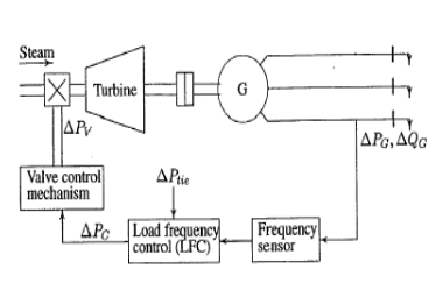


Indian Journal of Science and Technology
Year: 2022, Volume: 15, Issue: 25, Pages: 1264-1273
Original Article
Ashish Dhamanda1*, Arunesh Dutt2
1Gurukula Kangri (Deemed to be University), Haridwar, UK, India
2J K Institute Allahabad, Allahabad University, UP, India
*Corresponding Author
Email: [email protected]
Received Date:25 January 2021, Accepted Date:06 May 2022, Published Date:11 July 2022
Objective: To employ optimization technique (GA (Genetic Algorithm) Technique) to solve the problem of power generation, by means of mathematical approach to formulate the problem mathematically. Methods: Thermal units have been taken as a source of power generation. Transfer function model of thermal generating units has been developed and simulated through MATLAB Simulink software. The main issue of power generation is the continuous mismatching in the generation and consumption of electricity due to which continuous the change in frequency and corresponding power becomes a major issue, which need to be maintained in constancy for regular operation. For this purpose, optimization technique (GA Technique), PI (Proportional Plus Integral), PID (Proportional Plus Integral Plus Derivative) technique have been used to solve the issue of frequency and corresponding power. Findings: Solve the issues of change in frequency and corresponding tie line power, a table has been drawn for batter comparison. Novelty: The comparative results obtained from all technique have been put in table which shows that the optimization technique (GA Technique) gives very effective, efficient and dynamic results (8 Sec and 11 Sec in Frequency & Power Variation) compared to traditional technique (PI, PID) (28 Sec, 44 Sec & 27 Sec & 43 Sec in Frequency & Power Variation).
Keywords: Traditional Technique; GA (Genetic Algorithm) Technique; Optimization Technique; Power Generation
© 2022 Dhamanda & Dutt. This is an open-access article distributed under the terms of the Creative Commons Attribution License, which permits unrestricted use, distribution, and reproduction in any medium, provided the original author and source are credited.
Published By Indian Society for Education and Environment (iSee)
Subscribe now for latest articles and news.